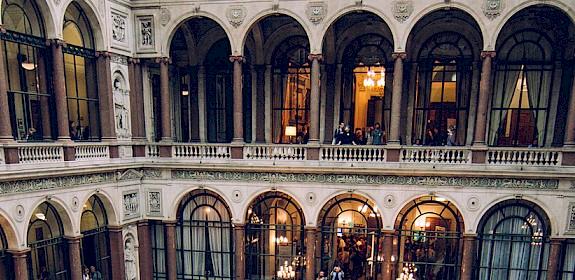EU must harness critical opportunity to address business practices that harm human and environmental rights
TRAFFIC urges the EU to bolster its Directive on Corporate Sustainability Due Diligence with focus on effectively addressing the challenges posed by unsustainable wildlife trade supply chains.
On 23 February 2022, the EU demonstrated its commitment to implementing its Green Deal by publishing a proposal for a Directive1 on Corporate Sustainability Due Diligence. The Directive is now being debated in the European Parliament and by the Member States, and the Commission is consulting with stakeholders on its proposal.
At this critical time, we emphasise that it is an outstanding opportunity for the EU to adopt legislation targeting companies and complementing the EU Wildlife Trade Regulations, and extend the requirements for effectively addressing the challenges posed by unsustainable wildlife trade supply chains.
Companies play a critical role in protecting biodiversity and ensuring that they source commodities only from legal and sustainable supply chains. However, the reality is that many companies do not trace where they source their raw materials and are therefore unable to comply with the fundamental basics of due diligence"
Richard Scobey, TRAFFIC's Executive Director
“This EU Directive will be a game changer. It will reshape how European businesses operate and require stronger attention to environmental sustainability and human rights in wildlife trade, with significant benefits to people and the planet” he added.
The EU is a major importer of wild animals (terrestrial and marine) and plants. Such trade contributes to the livelihoods of millions of people worldwide, generating billions of dollars of economic value annually. However, this trade is not always regulated effectively. Many of these commodities are subject to unsustainable exploitation levels, which jeopardize the status of species, ecosystems, and the well-being of people who depend on wild resources for their living.
Many wild species are illegally traded, generating significant illicit income for criminals/other actors, making it one of the world's most lucrative crimes. Organised crime groups trafficking wildlife commodities feed on inequality, corruption, a lack of governance in source countries, inadequate due diligence by companies, and a lack of rigorous monitoring by importers, such as the EU.
TRAFFIC encourages the European Parliament and the Member States to support a solid and ambitious legal text to minimise the negative impacts of certain business practices on wildlife and environmental rights.
We also urge the Commission to make sure that the implementation of this Directive, once adopted, will be monitored closely and in consultation with all stakeholders, in particular those it aims to protect in the source countries. We offer our assistance to support the implementation of the Directive at the intersection of human rights, wildlife trade and local communities.
Notes:
1 A "directive" is a legislative act that sets out a goal that all EU countries must achieve. However, it is up to the individual countries to devise their own laws on how to reach these goals. (source: https://european-union.europa.eu/institutions-law-budget/law/types-legislation_en)





